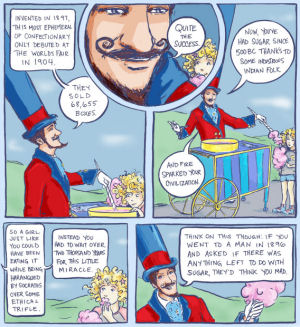My pal Gwenda has a discussion going over at her place about future desserts in fiction. I’m actually not that interested in future food, per se, but my interest was caught by a different statement of her about how she hates faux future shower technology. I don’t even disagree with that–I hate stuff that’s thrown in to give a patina of future without being thought through–but I take issue with the specific example.
However, I’m not going to go into my “our shower technology is that of cave men” thing here, because A) I did it there already, and B) Colonel Rowe will probably tell me, once again, to take the dress off.
The whole thing though has me thinking not about what things might be like N years from now, but rather about what things are commonplace now that would seem marvelous to someone N year ago–and more than that, what things that are commonplace now represent changes to something that a person N years ago would have said was “done”, that would no longer be subject to change.
Like, oh, I don’t know, cotton candy:
(That’s from Busted Wonder, 80 pages of goodness from Gillen & Larrison, first mentioned here in 2005. Highly recommended.)
Of course, it’s not just foodstuffs, hell it’s not just things. It’s also ideas and the worldview. It’s everything. Well, OK, not everything–we can ultimately figure somethings out completely; I’m pretty sure that we can consider tic-tac-toe a solved problem, and I suspect we’re getting closer all the time with chess, for examples, but those are highly constrained, rule-bound, closed systems. Outside of that kind of realm, every time someone says “I don’t think this will change as we go forward in time”, especially if the subtext is that we have reached the pinnacle of whatever that particular thing is, I think they’re setting themselves up for a good mocking by the universe.
The problem is that some of the really good ideas seem so obvious after you’ve heard them that you lose the ability to conceive (or in some cases remember) what the world looked like before they hit you. And yet before you were exposed to them, you might have said that people who were even thinking in that area were mad.
“More that can be done with sugar? It’s the dawn of the 20th century, we’ve had sugar for 2000 years. There is nothing new to be done with sugar. Are you mad?”
Which might be the best argument yet for working hard to keep your mind open to new ideas, perhaps especially the ones that sound mad.



1 comment for “Spun Sugar, Time, and Perspective”